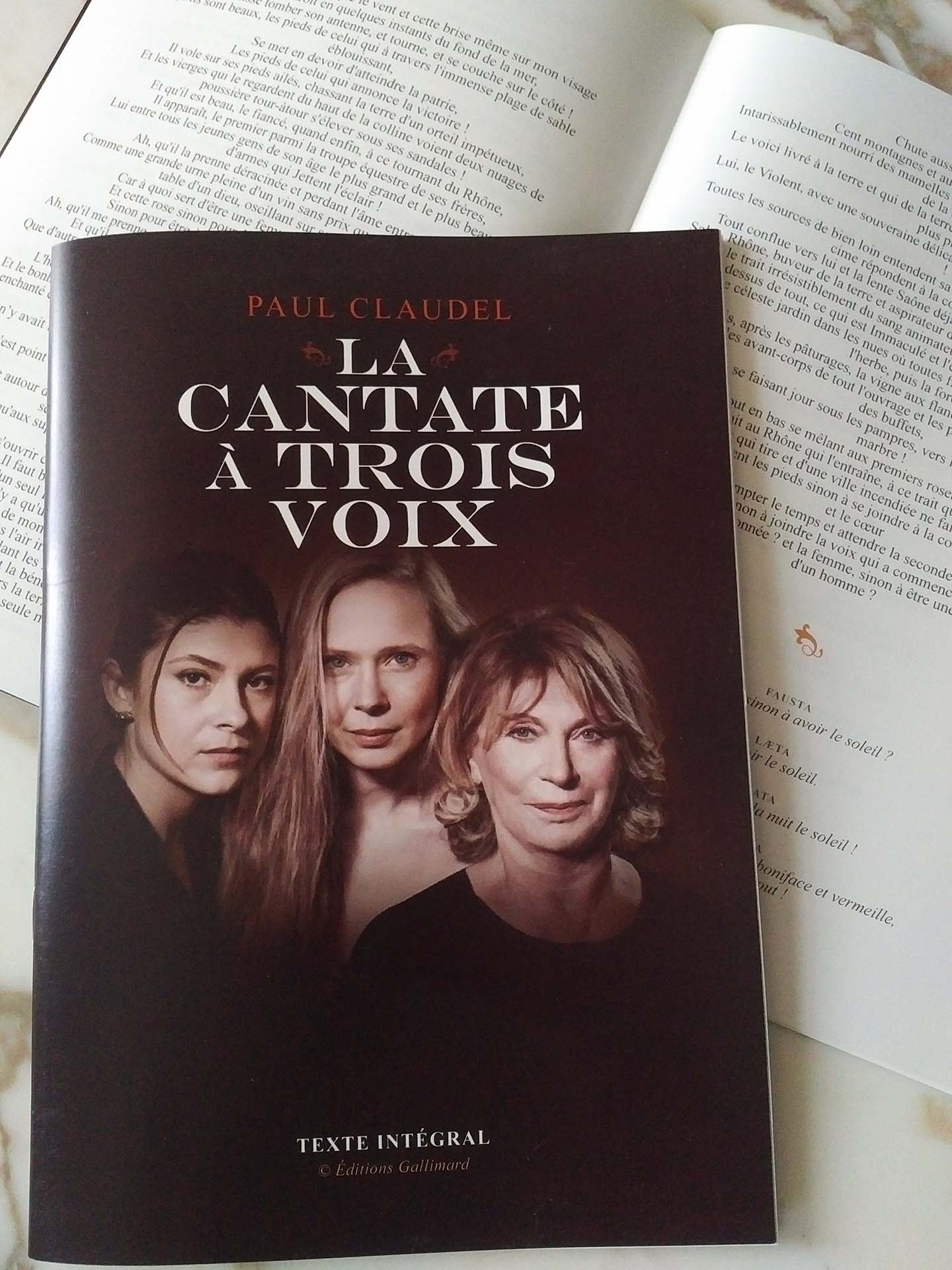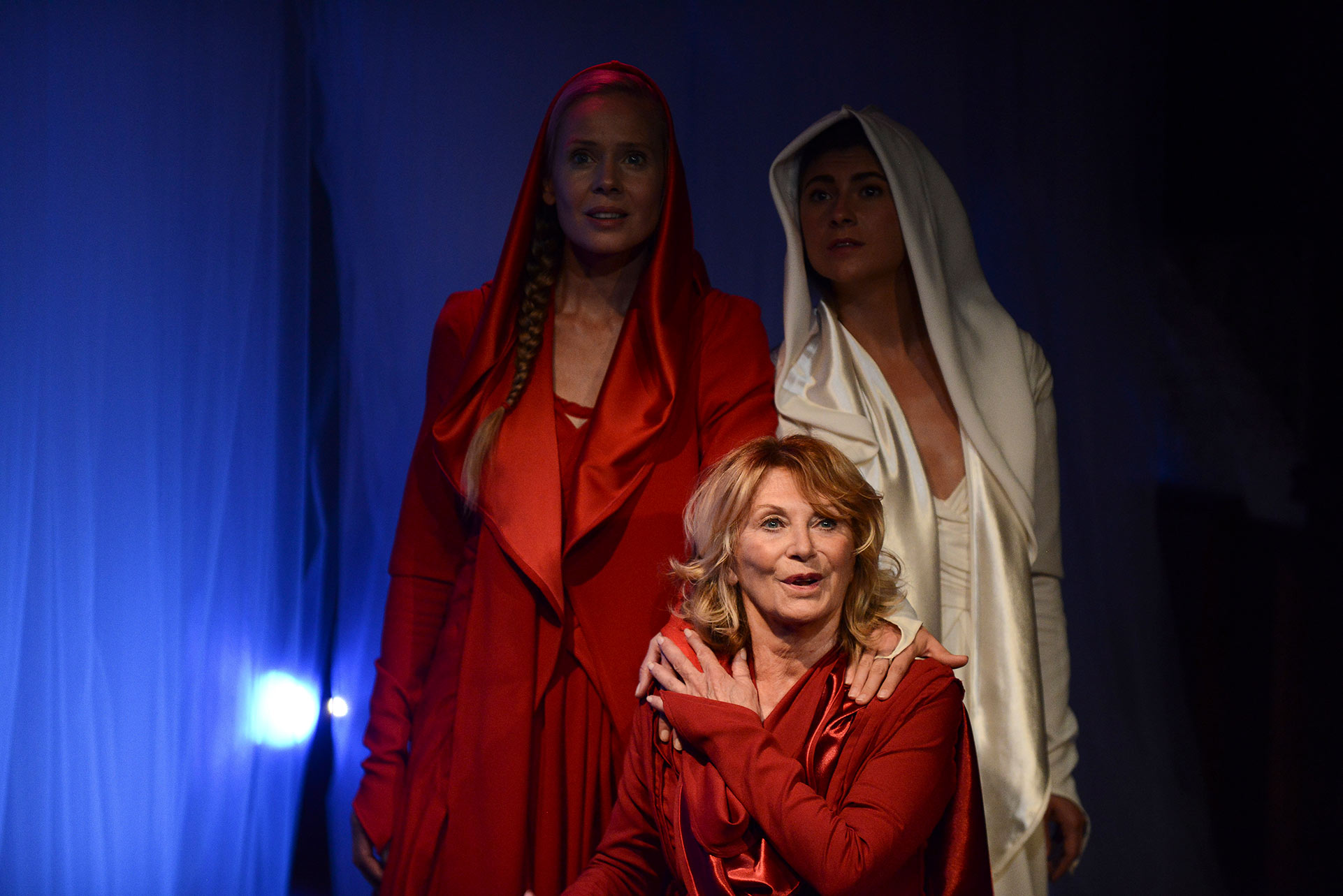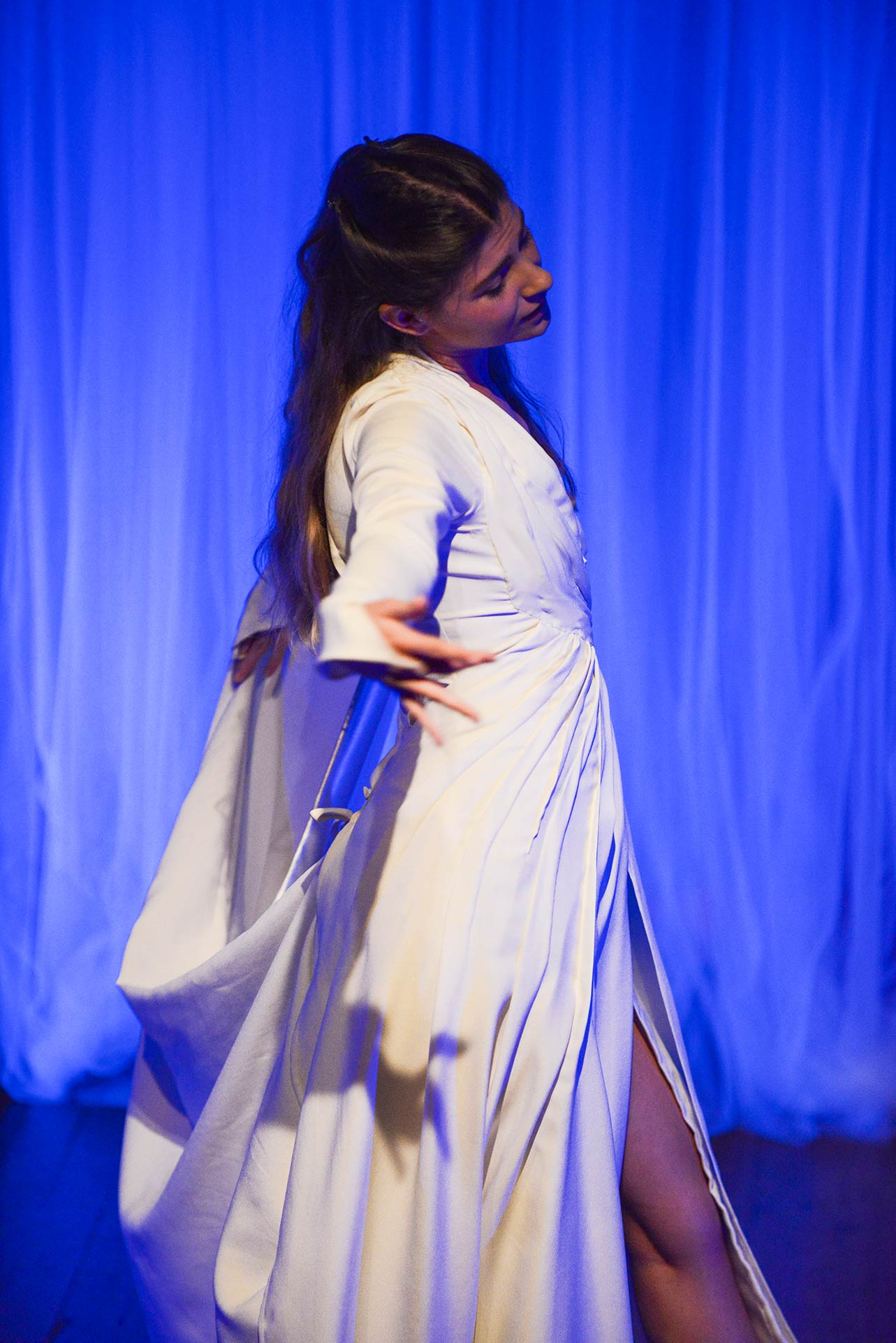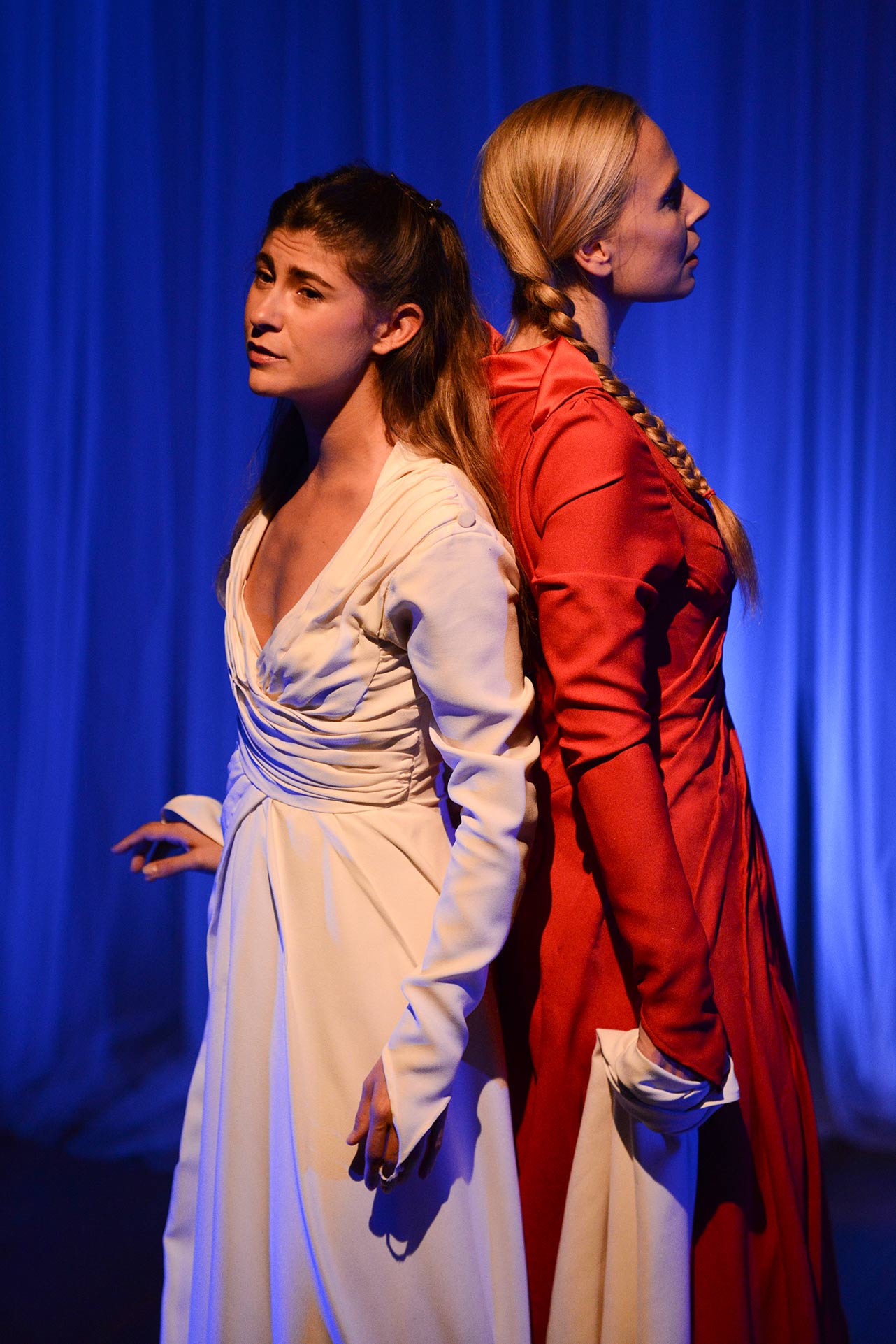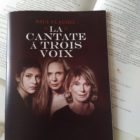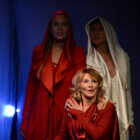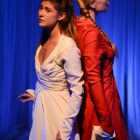Description
- Format :15×21 cm
- Paper weight: 135g
- Number of pages: 18 pages
- Language: French
- Author Paul Claudel
- Editions Gallimard
- Production of the show 21-22
“Happiness is of this very hour when we miss the one our heart loves” Fausta in La Cantate à Trois Voix.
Out of time, projected towards a certain eternity, three women, in the three ages of life, three faces that complete each other as one, one night, meet… and each then let’s rise in her, the long singing of her expectations… as if all things were defined by their vacuity, the night becomes the setting of all thoughts.
They invoke, they summon, their absent one, their loved one. And each has her own story while little by little emerges the intimate drama that resembles the struggle of desire and the possible.
Laeta speaks first. She is celebrating the fiancé, the promised one. The one who is still only a dream and whom she does not know.In turn, comes Fausta… the exile… she’s talking… powerful… a warrior. She addresses the one who is so far from her and who was her companion. Finally, comes Beata. She whispers the mourning of the one who is no longer… her husband and love beyond life.
If the man does not appear, it is because he is more alive, even more present in the imagination of these three women.
It is about life as a trajectory, it is about exile and death, expectation, pain, hope, destiny, whose paths will not be fixed by circumstances… but through love.
The work is a hymn to Woman and Desire…
WRITER: PAUL CLAUDEL
Playwright, poet and novelist
Born in 1868 in Champagne, Paul Claudel, at fifteen, wrote his first dramatic essay: L’Endormie, then, in the 90s, his first symbolist dramas (Tête d’Or, La Ville).
1886 proved decisive in his encounter with faith, which marked all his work.
In addition to his activities as a writer, for nearly forty years Paul Claudel had a career as a diplomat, which led him to travel the world, from the United States to China, Japan and various European capitals.
His work is imbued with a powerful lyricism. It is from the Bible that he borrows his preferred form of writing, the verse, which he uses as much in his poetry (Five Great Odes), his philosophic-poetic treatise (The East I Know, Poetic Art) as for his theatre (Break of noon).
Works of maturity, the dramatic trilogy: The Ostage, Le Pain dur, Le Pére humilié, then The Announcement to Mary and finally The Satin Shoe, his capital work, were to bring him a deserved glory.
He was elected to the French Academy in 1946 and died in 1955.

